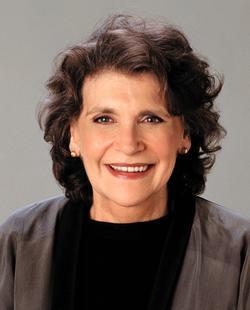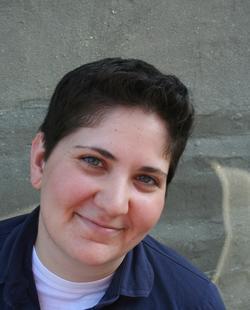Women's Health Activists
The history of women’s health often reads like a dark comedy: a tale of smelling salts and hysteria, virgin births and wandering wombs. Women remained woefully uninformed about their own bodies until the 1970s, when Barbara Seaman helped change the way women thought about healthcare. Today, Seaman’s millennial counterpart, Miriam Zoila Pérez, is revolutionizing birth activism and continuing Seaman’s efforts to put decisions about women’s health in their own hands.
Speaking up in a doctor’s office can be really tough. You’re vulnerable, in an awkward gown that won’t stay closed, and the doctor has better things to do than listen to your anxieties, right? Imagine if on top of those fears, your physician flat-out told you not to ask questions, not to be concerned about how you felt, and not to “worry your pretty little head” about the side effects of medicines you were taking. Before Barbara Seaman began fighting for women’s access to information about their own health, these were the realities of being a woman in a doctor’s office.
When Seaman started reporting on women’s health issues as a young journalist in 1960, she quickly discovered that women lacked the basic information necessary to make decisions about contraception and childbirth. Seaman was deeply concerned about the effects of estrogen on women’s health: years earlier, she’d watched her aunt die of uterine cancer after taking Premarin, a drug that contained estrogen and was linked to cancer. Of course, Seaman’s aunt was never informed of that link. Her doctor didn’t mention it until after she died. In 1969, Seaman published her first book, The Doctors’ Case Against the Pill, which inspired U.S. Senate hearings about the safety of oral contraceptives. Only men, however, were invited to testify at the hearings, while Seaman and other women’s health activists protested their exclusion.
At the end of the Senate hearings, the Pill was given the first-ever FDA warning label on any prescription drug. This landmark victory was the first of many in a career dedicated to empowering women to take charge of their healthcare and educating the public about the deep-rooted sexism perpetuated by medical professionals.
Seaman’s crusade for informed consent—the basic idea that women must be educated about the risks of drugs and procedures, and then trusted to make decisions about their own health—liberated women to ask questions, demand answers, and take control of their own bodies.
What’s a doula? A doula is a birth coach who provides physical and emotional support to women in labor to make their birth experience as pleasant and positive as possible. What’s a radical doula? Well, that’s a more complicated question.
Miriam Zoila Pérez became a doula in 2004, after the documentary Born in the USA galvanized her to enter birth activism. In 2007, she co-founded the Doula Project and started Radical Doula, a blog that connects doula work with LGBT issues, reproductive rights, immigrant rights, and racial justice. Though she coined the term, Pérez refuses to define what makes someone a Radical Doula, suggesting that being a doula in 2014 is a radical act in itself.
As a doula working with marginalized communities, Pérez quickly realized that pregnancy and the process of giving birth are highly stratified by race and class. She came to see her doula work as activism, and made Radical Doula a home for those who work to change the birth experience for queer people, people of color, and those who cannot afford a comfortable, middle-class birth experience. Much like Barbara Seaman, Pérez is first and foremost an educator dedicated to providing women with information, and as an extension, options. It’s no coincidence that in 2010, Pérez won the Barbara Seaman Award for Activism in Women’s Health from the National Women’s Health Network—an organization Seaman had co-founded 35 years earlier.
As a Cuban, Jewish, queer person growing up in North Carolina, Pérez’s own life is a study in crossing movements and oppressions. Though doulas are generally associated with the birth process, much of Pérez’s work has focused on supporting women through miscarriages and abortions and working with immigrant communities whose issues often differ drastically from those of other Americans. She speaks with great eloquence about the vital importance of empathy in the delivery room—and in the abortion clinic. Pérez’s mission to improve the birth experiences of people from all walks of life takes into account the great complexity of women’s lives and identities, creating a broad, inclusive vision for the future of reproductive health.




